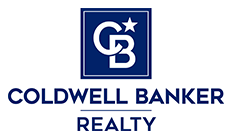Liability for Unpaid Community Association Assessments
Brevard County Real Estate News
Date Added: 2/26/2013
When property owners stop paying their mortgage, they typically stop paying community association assessments as well. In fact, it is more likely that a property owner will not pay association assessments, believing incorrectly that the homestead provision of the Florida Constitution protects the property from forced sale by a condominium or homeowners association. However, associations are given the right to lien property (even homestead) and foreclose on the lien. Since it could take over two years to complete a mortgage foreclosure action, associations have been pursuing their own foreclosure in order to rent out the property in an effort to recoup some of the lost revenue resulting from property owners’ failure to pay the assessments.
However, a recent court decision points out that the rent an association receives from taking title has a limited shelf life. In Aventura Management, LLC v. Spiaggia Ocean Condominium Association, Inc., Case No. 3D11-2545, January 23, 2013, a condominium association took title to a unit via foreclosure of its lien for past due assessments and began renting out the unit. Subsequently, the first mortgagee bank filed its foreclosure action and a third-party investor, Aventura Management, purchased the unit at the foreclosure sale. The association attempted to collect from Aventura the past due assessments, late fees and interest that had accrued since the original owner defaulted. The association maintained that as a third party purchaser, Aventura was responsible for all past due assessments up to the time it took title pursuant to Section 718.116(1)(a), Florida Statutes. The 3rd District Court of Appeal ruled that as an intervening owner, the association was also jointly and severally liable for the past due assessments when it was the owner. The majority decision opined that the Statute did not provide an exception to the joint and several liability for associations who take title to delinquent property. As a result, the association could not collect from Aventura the past due assessments, late fees and interest that had accrued since the original owner defaulted. There is a good dissenting opinion in this case written by Justice J. Shepherd which focused on statutory intent in an effort to assist associations and not the savvy investors who purchase property at the foreclosure sale. However, the majority opinion is the portion of the opinion that controls.
This case highlights the need to amend existing law to clarify that when an association (condominium, homeowner, or cooperative) takes title to a unit through its own lien foreclosure, the association does not become jointly and several liable for past due assessments and that an association can collect the past due assessments from the previous owner up to the time a new owner (other than the association) takes title to the unit. Though this decision may give associations reason to pause, it should not mean that associations should not proceed with its own lien foreclosure. As mentioned above, banks on average take more than 2 years to complete their own foreclosure action, a community association, by foreclosing its lien and taking title, can frequently collect large amounts of rent before the bank takes title back. The association must look at the facts and circumstances of each case in order to make an informed decision, and consult legal counsel in order to decide on the best course possible.

Nick Farinella, Realtor® - 35 Years in Business - 321-543-1685
Copyright © 2025 NicksRE.com | Created by Fencl Web Design | RETS


